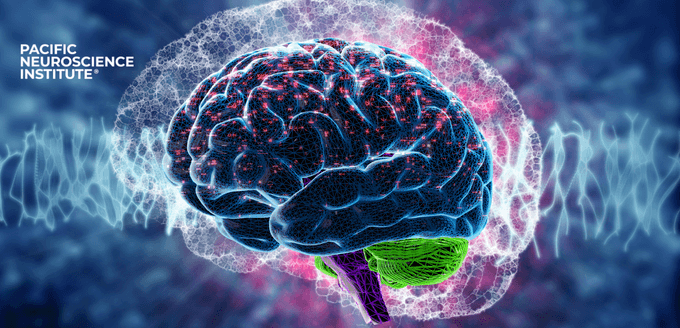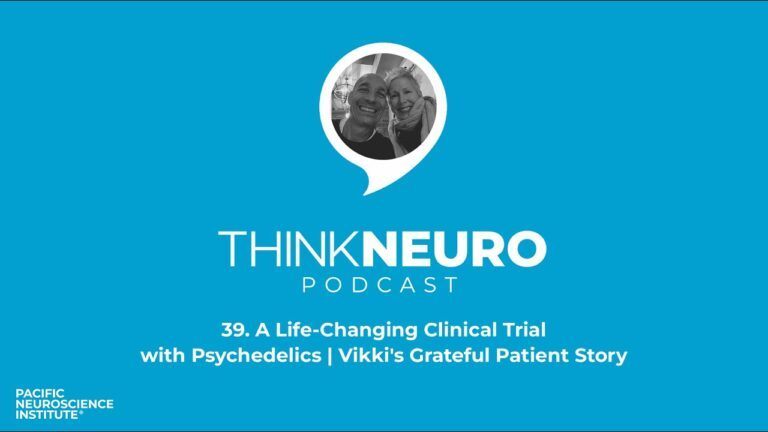
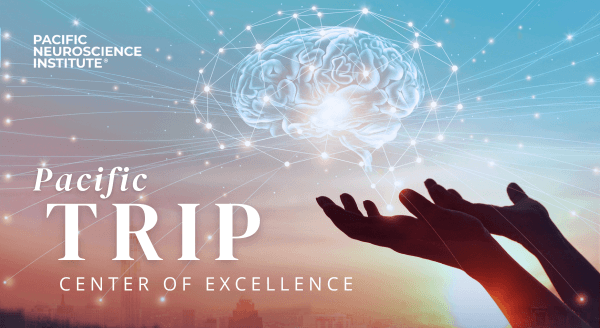
Embracing the Psychedelic Renaissance: Pacific Neuroscience Institute Unveils New Center of Excellence
by PNI Experts
We are excited to announce the expansion of our psychedelics program into a new center of excellence: the Pacific Treatment & Research In Psychedelics℠(TRIP℠) Center. As a leader in psychedelic research, Pacific Neuroscience Institute® (PNI®) continues to pioneer innovative mental health solutions.
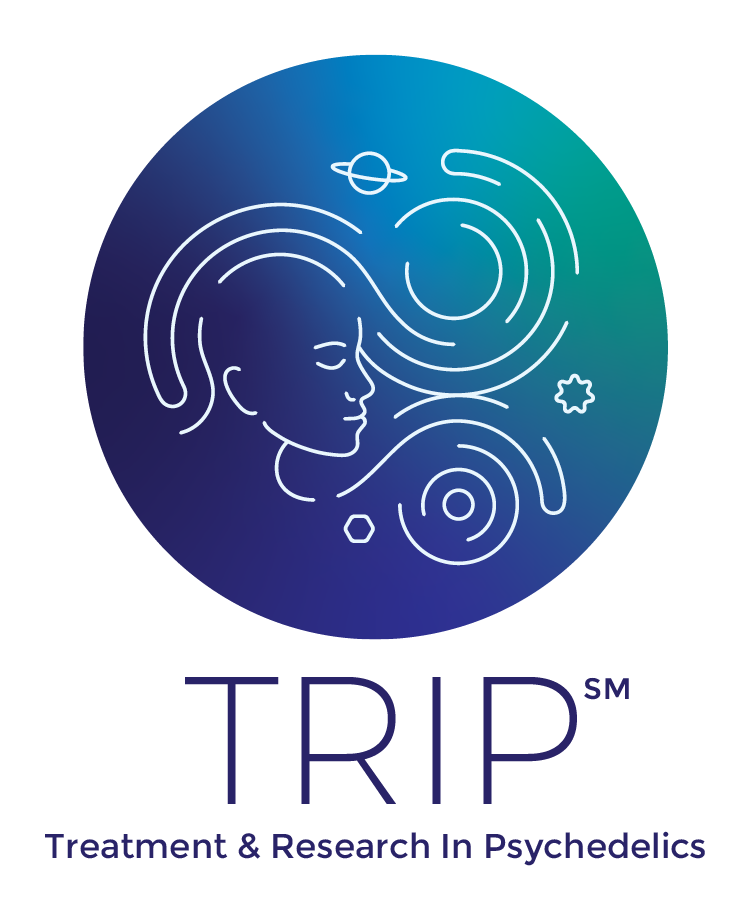
Announcing the Pacific TRIP Center of Excellence
Pacific Neuroscience Institute (PNI) is thrilled to announce the establishment of the Pacific TRIP Center of excellence, a pioneering initiative to advance mental health research and treatment. In June 2019, the TRIP Program began at the Pacific Brain Health Center. The TRIP program’s goal is to advance psychedelic-assisted therapies and to research how psychedelics and altered states of consciousness change behavior, improve brain health, and optimize life quality.
Over the last 4 years, under the leadership of Keith Heinzerling, MD, Program Director, and Daniel Kelly, MD, PNI Director and Co-Founder, the TRIP Program has flourished and expanded in terms of team members, clinical productivity, clinical trials, and notoriety. This remarkable growth has been fueled by philanthropic support from Saint John’s Health Center Foundation, the Annenberg Foundation and many generous individuals. Given our progress to-date and the potential for making impactful scientific contributions with our TRIP clinical research, we have now transitioned the TRIP Program to a Center of Excellence (COE) joining our other PNI COEs to further raise visibility and help sustain our expanded vision & mission for TRIP.
Psychedelic-Assisted Therapy: A Novel Approach
In the realm of mental health treatment, conventional methods often involve the daily administration of medications targeting neurochemical imbalances. Diverging from the daily pharmacopeia approach commonly practiced today, psychedelic-assisted therapy (PAT) aims to induce a transient but profound altered state of consciousness to address mental health issues, and to ultimately alter one’s outlook and behavior. With its roots in shamanic healing cultures dating back thousands of years, PAT with its set & setting model, is an expansive psycho-spiritual approach that seems to facilitate a “reset” of the mind and promotes structural and functional brain changes. Set refers to the mindset of the patient including their current state of mind and one’s life history. Setting refers to the environment in which the medicine session or “journey” occurs including the physical space, music, and guides.
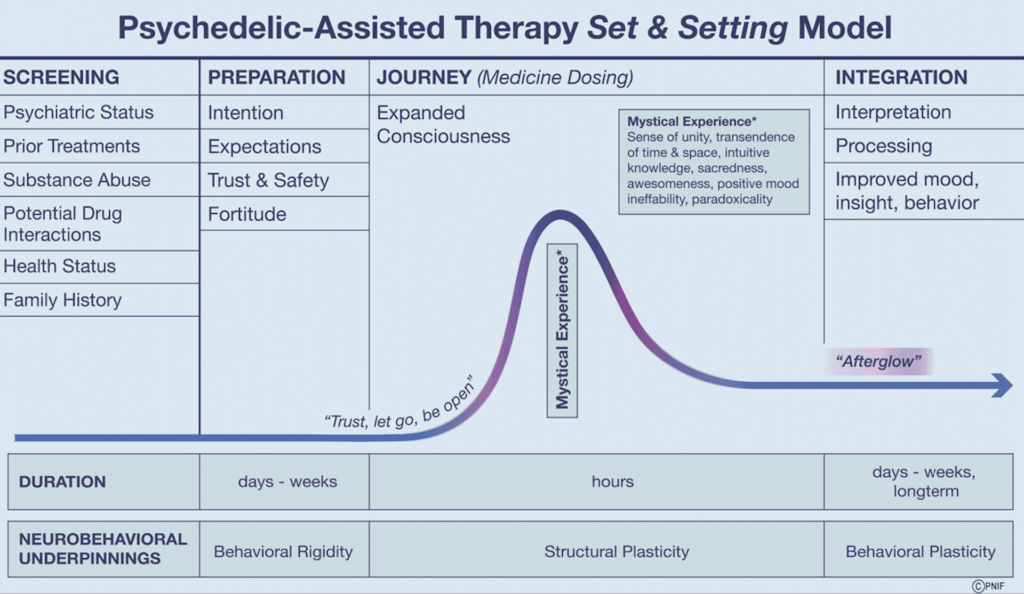
Promising Results in Recent Clinical Trials
In recent clinical trials spanning the past 15 years, the innovative PAT approach has demonstrated immense potential using psychedelic substances like psilocybin (from “magic” mushrooms), MDMA (Ecstasy), and LSD. Notably, the approach shows promise in assisting individuals dealing with a range of mental anguish, including depression, anxiety, addiction, and post-traumatic stress disorder (PTSD). For instance, Phase 2 clinical and pilot trials of patients administered psilocybin for major depression, terminal cancer, nicotine addiction, and alcohol addiction, along with Phase 3 trials of MDMA for post-traumatic stress disorder (PTSD), have demonstrated significantly higher success rates compared to existing therapies, with very low rates of serious adverse events.
How Do Psychedelics Affect the Brain and Change Behavior?
Numerous studies reveal that psychedelics act as neuroplastogens, aiding the brain in forming new connections via neurogenesis (generation of new neurons) and synaptogenesis (formation of synaptic connections between neurons). Promoting neuroplasticity may be at the core of allowing individuals to alter their behavior and cultivate alternative perspectives on their challenges. While the precise mechanisms are not fully understood, it is believed that classic psychedelics like psilocybin and LSD, working predominantly through the serotonin system, loosen the processes that typically restrict neural systems related to cognition, perception, emotion, and self-perception.
By following a “set & setting” paradigm, which involves preparation beforehand and integration (counseling) afterward, the psychedelic-induced state aims to enable individuals to achieve new perspectives and insights. These transformations may include attaining fresh insights into themselves, their life trajectory, interpersonal connections, and developing a more expansive, cosmic and spiritual outlook. Frequently, the psychedelic journey culminates in a “mystical experience” or “ego dissolution,” both of which appear to predict therapeutic efficacy.
In contrast, MDMA–assisted therapy, which has proven highly effective in treating PTSD, typically does not result in ego dissolution. Like psilocybin and LSD, MDMA acts on the serotonin system but also other neurotransmitters and hormones including oxytocin and cortisol. Often called an “empathogen”, MDMA seems to allow individuals to reassess traumatic events with emotional openness, devoid of fear and anxiety, leading to a favorable restructuring of such memories. For a more comprehensive review of psychedelic-assisted therapy and psychedelic science, please consult this article authored by Dr. Kelly, Dr. Heinzerling, and the TRIP team.
The Urgent Need for Clinical Trials for Psychedelic Medicines
Presently, all psychedelic medicines such as psilocybin, LSD, MDMA and 5-MeO-DMT (excluding ketamine) are categorized as Schedule 1 substances by the DEA, making them illegal and inaccessible for clinical practice. While there are some recent exceptions from state legislation in Oregon and Colorado and some religious use exceptions for ayahuasca, in general, the sole avenue to render these potentially life-altering treatments accessible to the general public within existing healthcare environments, and eventually eligible for insurance coverage, is via clinical trials that establish their enduring efficacy and safety. With the immense scale of the mental health crisis both in the United States and worldwide, coupled with the limited effectiveness of current therapies, continued assessment of the safety and efficacy of PAT at an accelerated pace is imperative.
Advancing Psychedelic Research at PNI
PNI has extensive experience and specialized knowledge in executing groundbreaking clinical trials in various neurosciences domains including brain tumors, dementia, stroke, hydrocephalus and Parkinson’s disease. Our TRIP team has successfully completed two trials of psilocybin-assisted therapy: one for major depressive disorder and another for alcohol use disorder (publications pending). We are presently nearing completion of enrollment for a multi-site trial involving LSD to address generalized anxiety disorder and have several other trials close to launching or in the planning stage.

Ketamine Therapy Available at PNI
Since 2020, Dr. Heinzerling and his team have been offering ketamine-assisted psychotherapy (KAP) for individuals aged 18 and above for a variety of mental health issues. Per US federal law, registered medical practitioners have legal permission to use ketamine outside of clinical trials, including in settings like ketamine clinics and healthcare facilities.
KAP at TRIP involves employing low doses of ketamine, a dissociative anesthetic medicine in a “set & setting” model with eyeshades, music and psychedelic guides. KAP may treat depression, anxiety disorders, addiction, and PTSD. Typically, treatment involves one or multiple in-clinic ketamine dosing sessions combined with psychotherapy. By harnessing the potential psychedelic effects of ketamine, the aim of KAP is to achieve more sustained results with fewer ketamine treatments compared to IV ketamine infusions without accompanying psychotherapy.
Ensuring Your Safety Is Our Priority
Psychedelic-assisted therapy may not be suitable for everyone and carries inherent risks. Similar to a surgical procedure, ensuring its safety and efficacy necessitates a dedicated, skilled, and empathetic team that can aid in your preparation, bolster your fortitude for the psychedelic journey, accompany you throughout the experience, and offer support during the integration phase in the subsequent days and weeks afterward.
The TRIP team, led by Dr. Heinzerling, has extensive expertise in administering PAT and conducting clinical trials. Our patients experience a safe, caring environment with compassionate, specialized medical professionals. Click here to discover how the TRIP team prioritizes your comfort, safety, and optimal outcomes.
A Trailblazing Future for Mental Health Treatment at TRIP
The Pacific TRIP Center lies at the forefront of a transformative era in mental healthcare. Through the pioneering use of PAT, we aim to help revolutionize mental health treatment paradigms and to enhance our patients’ quality of life while gaining a better understanding of neuroplasticity, the underpinnings of mental anguish, and the nature of mind itself. As we continue to conduct clinical trials and deepen our scientific understanding of how psychedelic medicines can be used to help heal the mind, we hope to offer more options and a brighter future for individuals navigating mental illness.
About Dr. Kelly

Daniel Kelly, MD, a board-certified neurosurgeon, is the Director and one of the founders of the Pacific Neuroscience Institute, Director of the Pacific Brain Tumor Center and Pacific Pituitary Disorders Center, and Professor of Neurosurgery at Saint John’s Cancer Institute at Providence Saint John’s Health Center. Considered to be one of the top neurosurgeons in the US, he is a multiple recipient of the Patients’ Choice Award. Additionally, Dr. Kelly has been awarded the Southern California SuperDoctors distinction 16 years in a row. Over the last 5 years, he has increasingly focused his attention on helping advance novel mental health care solutions and in 2019, launched TRIP by recruiting Dr. Keith Heinzerling. He is a co-investigator on TRIP clinical trials and in 2021 he completed the California Institute of Integral Studies Certificate in Psychedelic-Assisted Therapies and Research training program.
About Dr. Heinzerling
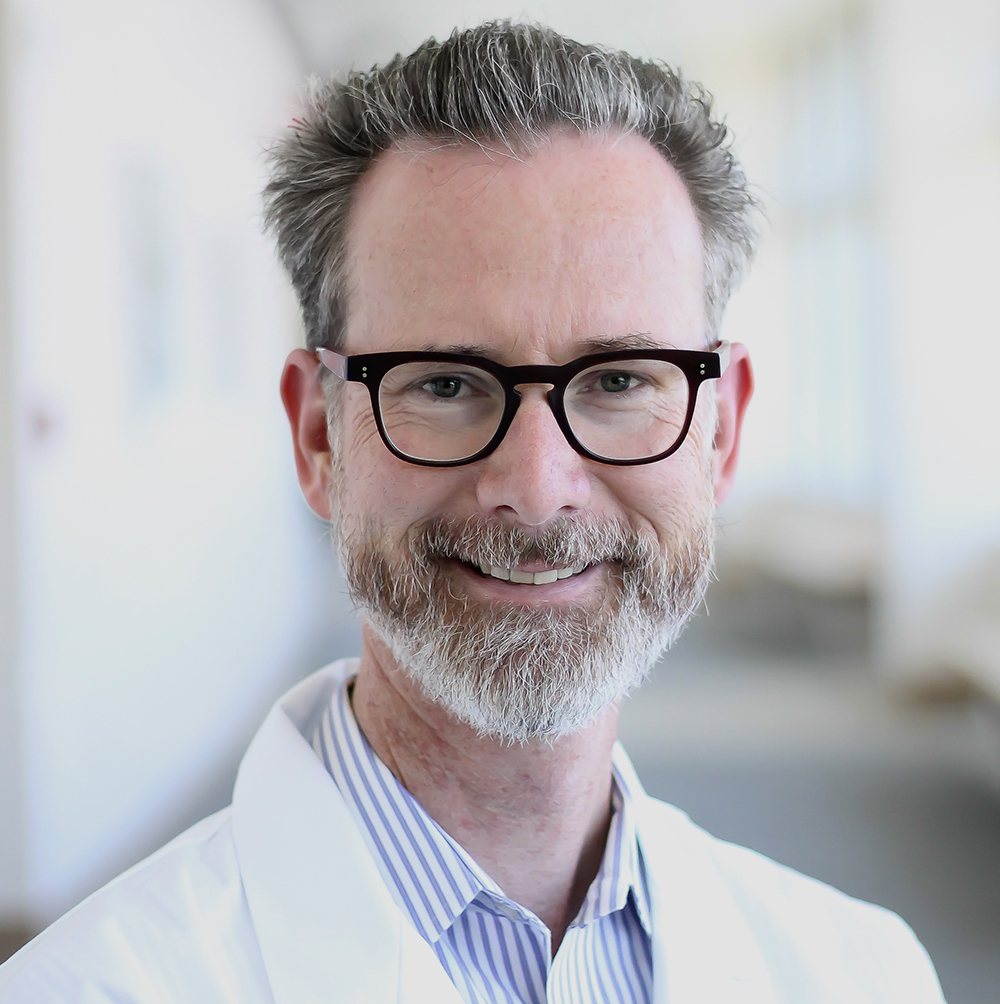
Keith Heinzerling, MD, practices internal medicine and addiction medicine at the Pacific TRIP Center, Pacific Neuroscience Institute. His clinical and research focuses are on the treatment of mental health disorders with psychedelic-assisted therapy including depression, anxiety, and related conditions as well as alcohol, and other substance use problems such as opioids and cannabis and nicotine. As director of Pacific TRIP Center, he oversees clinical trials using Schedule 1 psychedelic medicines like psilocybin and LSD, and offers ketamine-assisted psychotherapy to appropriate patients. In 2020 he completed the California Institute of Integral Studies Certificate in Psychedelic-Assisted Therapies and Research training program.
Useful Links
Related Articles
Related Videos
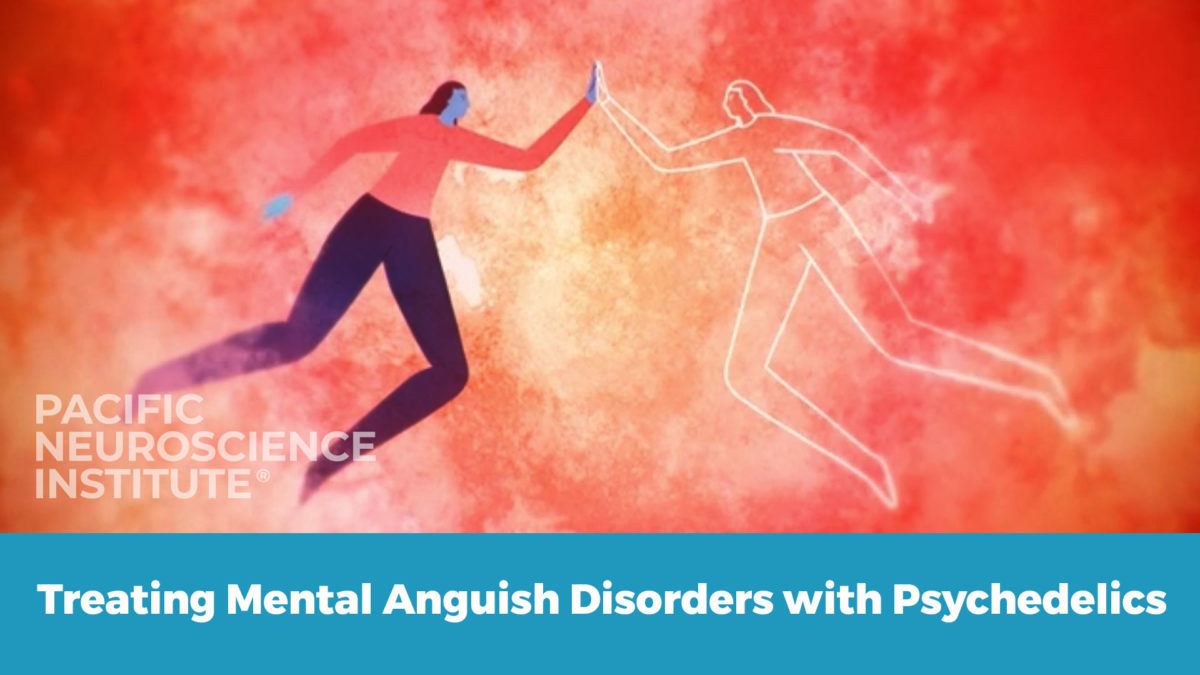 Treatment & Research In Psychedelics (TRIP) at Pacific Neuroscience Institute | Explainer
At PNI’s Treatment & Research In Psychedelics (TRIP) Program, we conduct clinical trails at the forefront of innovative and transformative medicine. TRIP, spearheaded by Daniel Kelly, MD and Keith Heinzerling,…
Treatment & Research In Psychedelics (TRIP) at Pacific Neuroscience Institute | Explainer
At PNI’s Treatment & Research In Psychedelics (TRIP) Program, we conduct clinical trails at the forefront of innovative and transformative medicine. TRIP, spearheaded by Daniel Kelly, MD and Keith Heinzerling,…
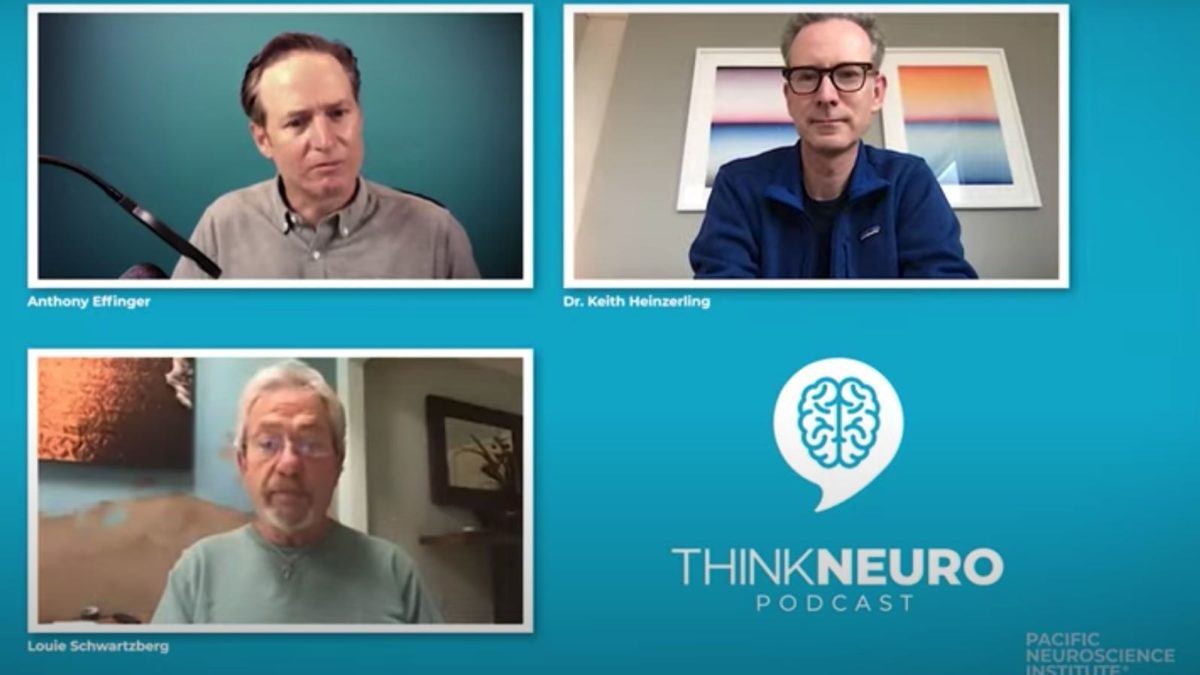 Think Neuro Podcast: The Promise of Psychedelics | Dr. Keith Heinzerling & Louie Schwartzberg
Addiction and depression are two of the most widespread conditions in all of medicine. After decades of research, doctors are still looking for alternatives for when medication and cognitive training…
Think Neuro Podcast: The Promise of Psychedelics | Dr. Keith Heinzerling & Louie Schwartzberg
Addiction and depression are two of the most widespread conditions in all of medicine. After decades of research, doctors are still looking for alternatives for when medication and cognitive training…
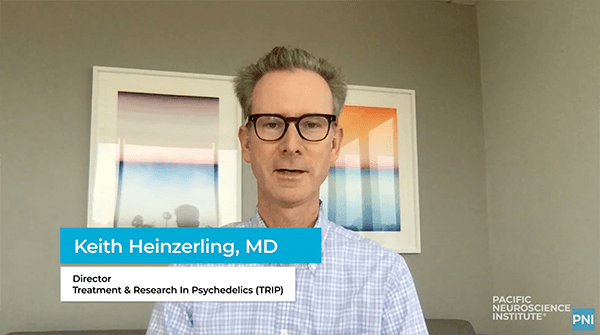 Psychedelic-Assisted Therapy at Pacific Neuroscience Institute
Dr. Keith Heinzerling is an addiction medicine specialist and Director of Treatment & Research In Psychedelics (TRIP) at Pacific Neuroscience Institute in Santa Monica, CA. Learn about how psychedelic-assisted therapy…
Psychedelic-Assisted Therapy at Pacific Neuroscience Institute
Dr. Keith Heinzerling is an addiction medicine specialist and Director of Treatment & Research In Psychedelics (TRIP) at Pacific Neuroscience Institute in Santa Monica, CA. Learn about how psychedelic-assisted therapy…
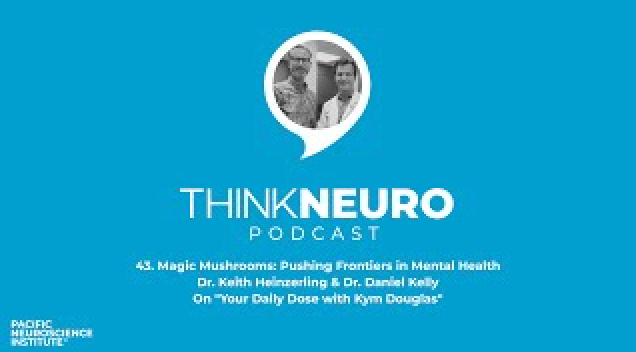 43. Magic Mushrooms: Pushing Frontiers in Mental Health – Guest Podcast | Dr. Kelly, Dr. Heinzerling
This episode comes from the Saint John’s Health Center Foundation’s podcast, Your Daily Dose with Kym Douglas. Pacific Neuroscience Institute experts, Dr. Keith Heinzerling and Dr. Daniel Kelly discuss the…
43. Magic Mushrooms: Pushing Frontiers in Mental Health – Guest Podcast | Dr. Kelly, Dr. Heinzerling
This episode comes from the Saint John’s Health Center Foundation’s podcast, Your Daily Dose with Kym Douglas. Pacific Neuroscience Institute experts, Dr. Keith Heinzerling and Dr. Daniel Kelly discuss the…
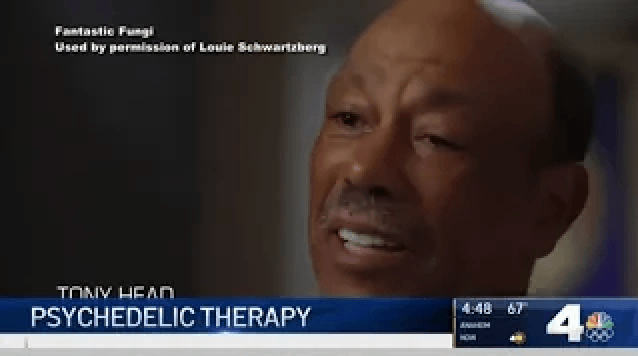 NBC News Features Treatment & Research In Psychedelics (TRIP) at PNI
NBC News features Pacific Neuroscience Institute’s Dr. Daniel Kelly & Dr. Keith Heinzerling, and filmmaker Louie Schwartzberg, and PNI’s groundbreaking psychedelic-assisted clinical trial for alcohol use disorder which launched in…
NBC News Features Treatment & Research In Psychedelics (TRIP) at PNI
NBC News features Pacific Neuroscience Institute’s Dr. Daniel Kelly & Dr. Keith Heinzerling, and filmmaker Louie Schwartzberg, and PNI’s groundbreaking psychedelic-assisted clinical trial for alcohol use disorder which launched in…
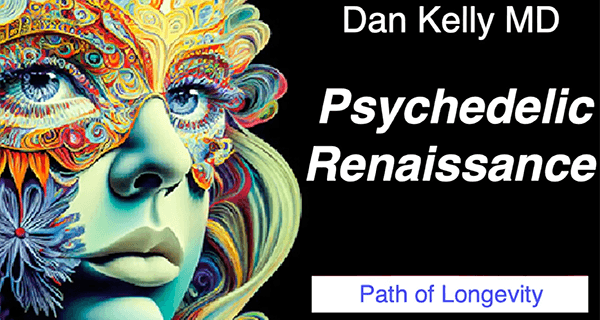 Psychedelics Renaissance | Dr. Daniel Kelly
Dr. Dan Kelly is the director and one of the four co founders of the Pacific Neuroscience Institute, a multispecialty group of over 35 physicians working across nine centers of…
Psychedelics Renaissance | Dr. Daniel Kelly
Dr. Dan Kelly is the director and one of the four co founders of the Pacific Neuroscience Institute, a multispecialty group of over 35 physicians working across nine centers of…
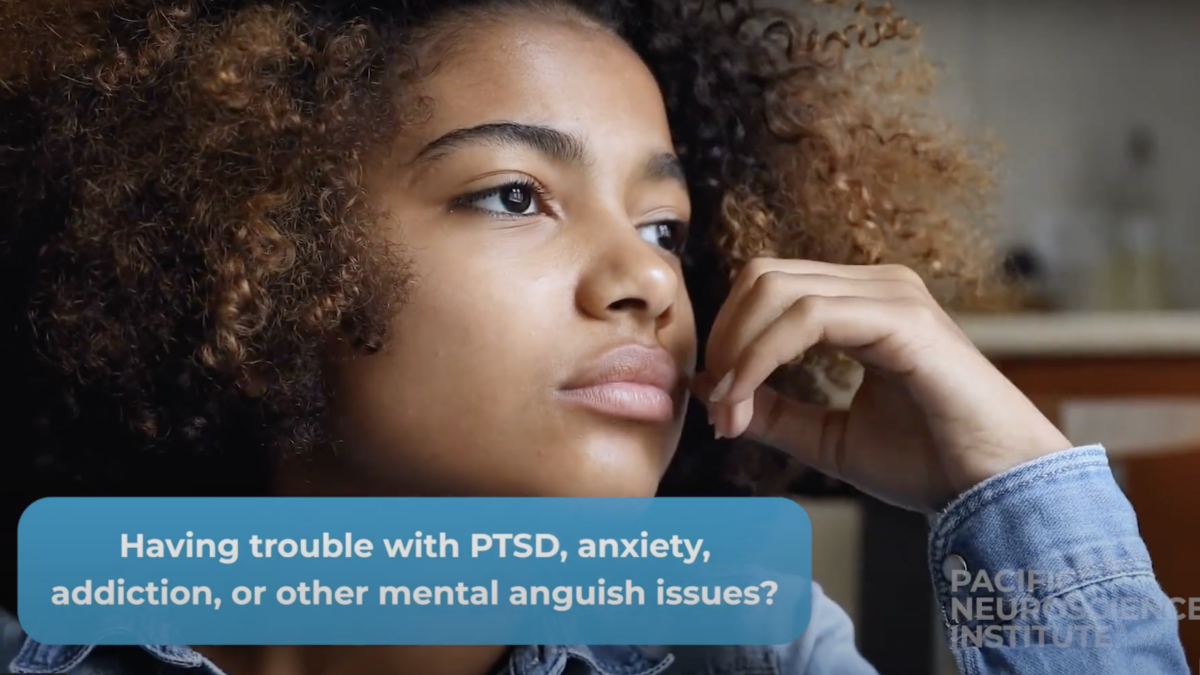 Psychedelic-Assisted Ketamine at Pacific Neuroscience Institute | 0:15 Second Spot 2023
Psychedelic-Assisted Ketamine at Pacific Neuroscience Institute | 0:15 Second Spot 2023
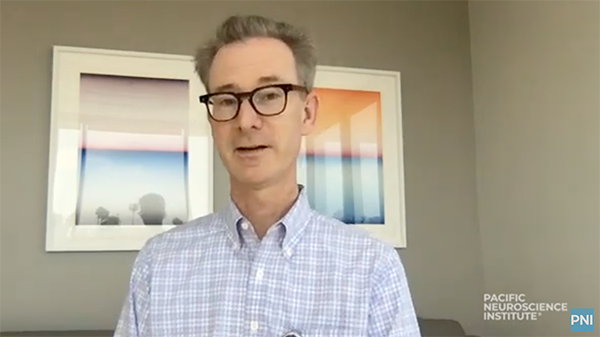 Psychedelic-Assisted Therapy with Ketamine at PNI
Using ketamine in a psychedelic-assisted approach, we treat people 16 years and older who are treatment-resistant or who wish to effectively tackle deep-rooted, unresolved trauma that has not been adequately…
Psychedelic-Assisted Therapy with Ketamine at PNI
Using ketamine in a psychedelic-assisted approach, we treat people 16 years and older who are treatment-resistant or who wish to effectively tackle deep-rooted, unresolved trauma that has not been adequately…
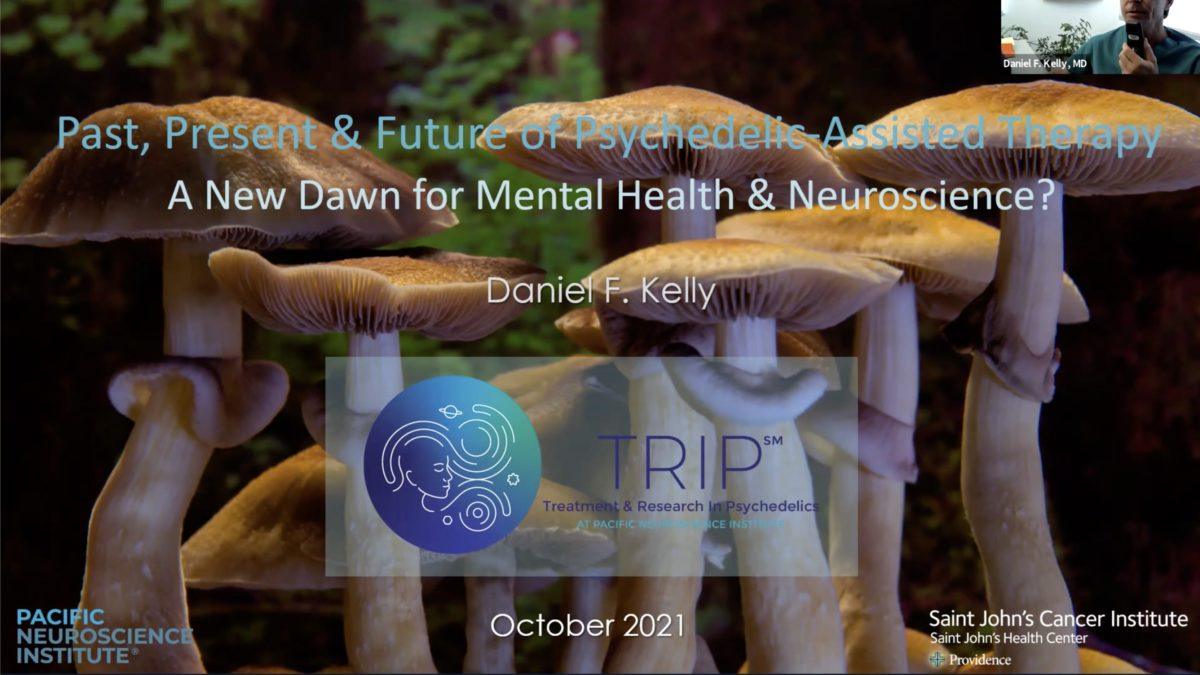 10. October, 2021: Past, Present, and Future of Psychedelic-Assisted Therapies
10. October, 2021: Past, Present, and Future of Psychedelic-Assisted Therapies
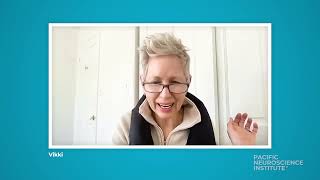 39. A Life-Changing Clinical Trial with Psychedelics | Vikki’s Grateful Patient Story
Vikki was walking her dog and listening to NPR in Santa Monica one day, when she heard an advertisement for an unusual medical trial. Pacific Neuroscience Institute was studying whether…
39. A Life-Changing Clinical Trial with Psychedelics | Vikki’s Grateful Patient Story
Vikki was walking her dog and listening to NPR in Santa Monica one day, when she heard an advertisement for an unusual medical trial. Pacific Neuroscience Institute was studying whether…
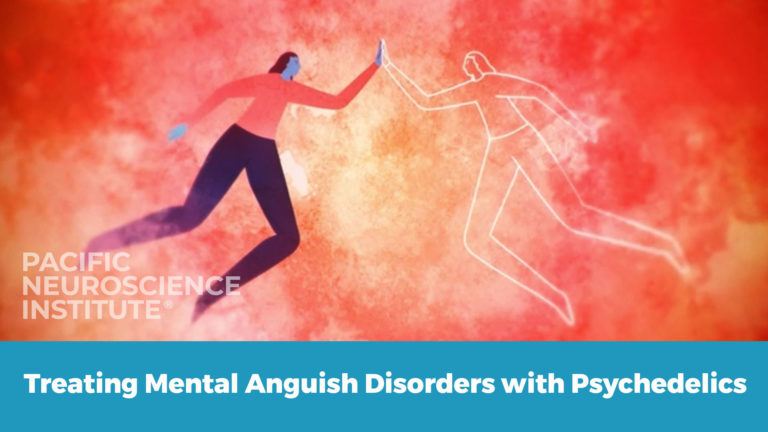
Treatment & Research In Psychedelics (TRIP) at Pacific Neuroscience Institute | Explainer
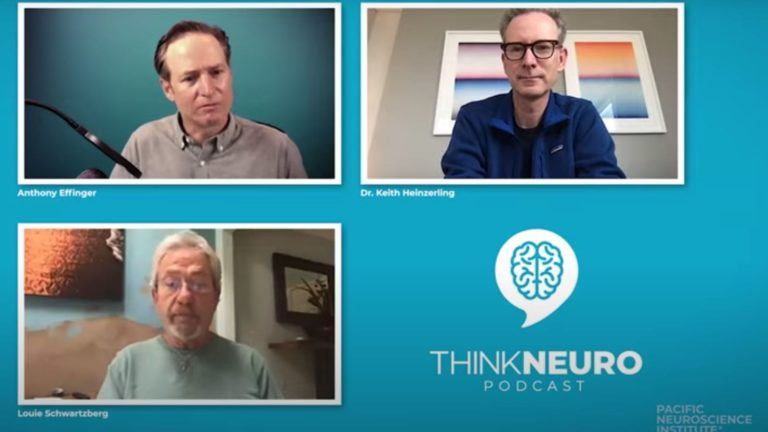
The Promise of Psychedelics | Dr. Keith Heinzerling & Louie Schwartzberg

Psychedelic-Assisted Therapy at Pacific Neuroscience Institute

43. Magic Mushrooms: Pushing Frontiers in Mental Health – Guest Podcast | Dr. Kelly, Dr. Heinzerling

NBC News Features Treatment & Research In Psychedelics (TRIP) Program at PNI

Psychedelics Renaissance | Dr. Daniel Kelly
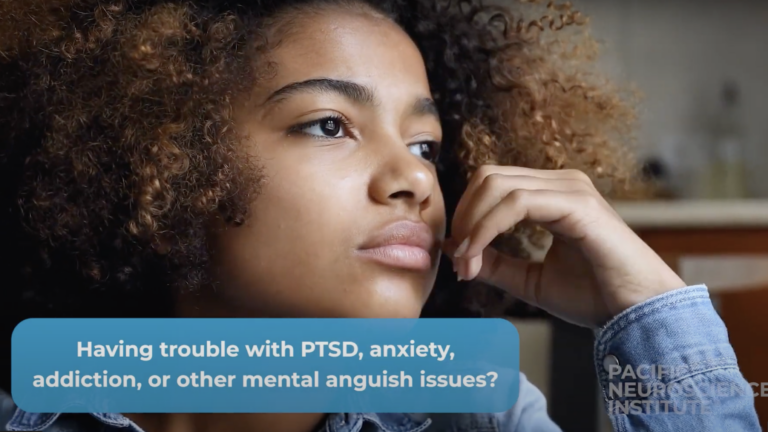
Psychedelic-Assisted Ketamine at Pacific Neuroscience Institute | 0:15 Second Spot 2023

Psychedelic-Assisted Therapy with Ketamine at PNI
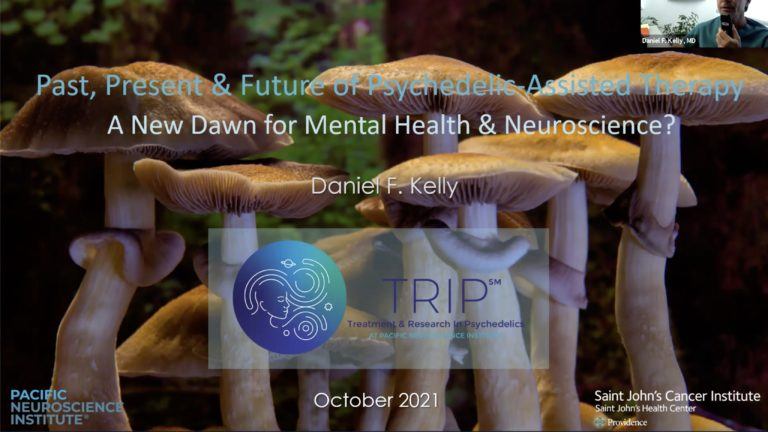
10. October, 2021: Past, Present, and Future of Psychedelic-Assisted Therapies

39. A Life-Changing Clinical Trial with Psychedelics | Vikki’s Grateful Patient Story
About the Author
PNI Experts
Last updated: April 4th, 2024

